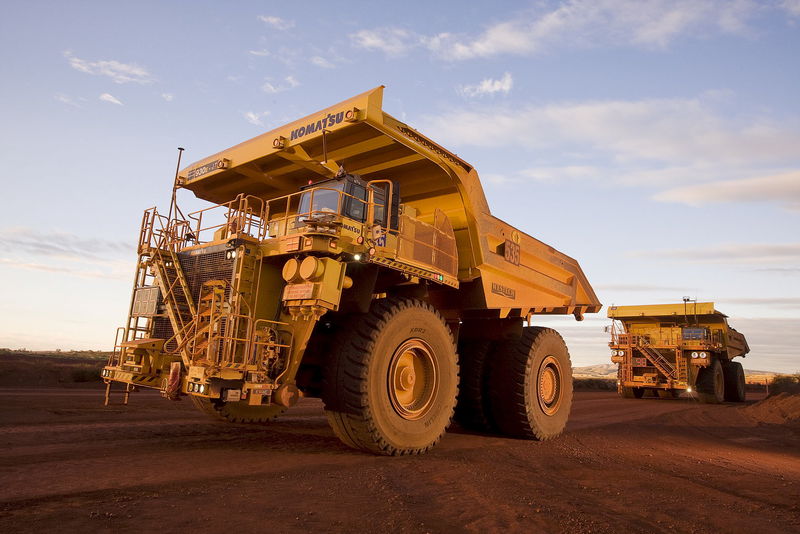(The opinions expressed here are those of the author, a columnist for Reuters.)
By Clyde Russell
LAUNCESTON, Australia, Feb 10 (Reuters) - - When the going gets tough, the tough ask for tax relief. If you are looking for a sign that the end game of the commodity downturn is getting closer, witness the clamour for more support from Australia's embattled resources sector.
Asking for government help is one of the last steps a mining company can take to stay alive, assuming it's already exhausted every conceivable cost saving, emptied the pockets of its owners and reached the limits of what its bankers will lend.
The latest call came this week from the Queensland Resources Council (QRC), which said the coal mining industry needs support to keep the remaining 60,000 workers employed, following the loss of 21,000 jobs in the past two years.
"We are not looking for bailouts or subsidies but our entire sector needs certainty and support in the shape of commitments to reduce red tape and unjustified government-imposed and government-sanctioned costs," QRC Chief Executive Michael Roche said in a Feb. 8 statement.
"At the top of our list are royalties, local government rates and the charges from government and private sector providers of rail, port, power and water services," he said.
The preceding two paragraphs from the statement illustrate the problem facing the resources sector, insofar as they don't want to be seen to be asking for government handouts, although in effect that's exactly what they want.
Asking for relief from royalty payments, other government charges and for lower costs at government-owned facilities is a de facto request to receive what could broadly be termed as a handout.
It may well be the case, especially for smaller and higher-cost coal mines, that more jobs will be lost and pits closed if such relief isn't forthcoming, as Roche warns.
But governments also find themselves in a bind, facing ever-rising demands for more spending on health and other services while seeing the revenue they expected from the resources boom evaporate in the face of low commodity prices.
The Queensland state government wrote down the expected revenue from coal-mining royalties over the next four years by almost A$3 billion ($2.11 billion) in its budget last year.
This means it's extremely unlikely to want to lower royalty payments, or the amount state-controlled corporations charge for using railways and ports.
Queensland Premier Annastacia Palaszczuk is willing to discuss the issues with the QRC, but won't hand out cash to mining companies, the Brisbane-based Courier Mail reported on Wednesday.
"As I said very clearly, my Government is not in the business of giving money to private enterprise," the newspaper quoted her as saying.
This is a consistent message from Palaszczuk, who earlier this year refused to provide financial guarantees to Queensland Nickel, the refining operation owned by flamboyant miner turned politician Clive Palmer that was placed in voluntary administration last month.
It is sensible policy for the Queensland state government to decline to subsidise struggling resource companies, even if this will come at the cost of mine closures and job losses.
For politicians in democracies it's a brave decision to risk job losses and subsequent voter displeasure, even in pursuit of sustainable longer-term industries.
For the QRC, there is nothing wrong with lobbying hard in the interests of your members, even if the wider interest of all of them would actually be better served by the collapse of the weakest.
It still seems that many in the resources industry haven't yet grasped that the inevitable consequence of massively overbuilding supply is the failure of the shakiest companies.
LNG, IRON ORE ALSO SEEK RELIEF
Queensland, which produces the vast majority of Australia's coking coal and is also home to three new liquefied natural gas (LNG) plants, will be better served in the longer term by the closure of unprofitable operations, rather than seeing them cling on through royalty and other government relief.
Just like coal, the LNG plants are also facing the reality of huge oversupply, and have started the process of seeking relief, albeit in a somewhat different manner.
APLNG, the facility owned by Origin Energy Energy ORG.AX and ConocoPhillips (N:COP) COP.N , is asking the state Supreme Court to set aside the Queensland government's royalty calculations, according to a report in the Australian Financial Review on Feb. 8.
Even if the legal challenge fails, it wouldn't be too much of a stretch to expect the LNG industry to also seek other forms of relief, especially if prices and demand in Asia remain soft.
But the problems of government support can be seen across the country in Western Australia, home to the world's biggest iron ore mining industry.
There the state government decided last year to waive 50 percent of royalty payments to smaller mines that were actively trying to restructure their operations.
This provided a lifeline to minnows such as BC Iron BCI.AX , but at the same time kept supply in the market that should have been closed down.
Iron ore is probably one of the most over-supplied commodities currently, and with the softening outlook for Chinese steel demand is likely to remain that way.
The question for governments is whether assistance in any form is actually a help or a hindrance to efforts to re-balance commodity markets.
The faster markets can re-balance, the faster the relief of higher prices can be felt by the survivors.
Ultimately, a smaller but more sustainable resources sector is better than weak companies struggling along, propped up by the public purse.
($1 = 1.4190 Australian dollars) (Editing by Christian Schmollinger)
